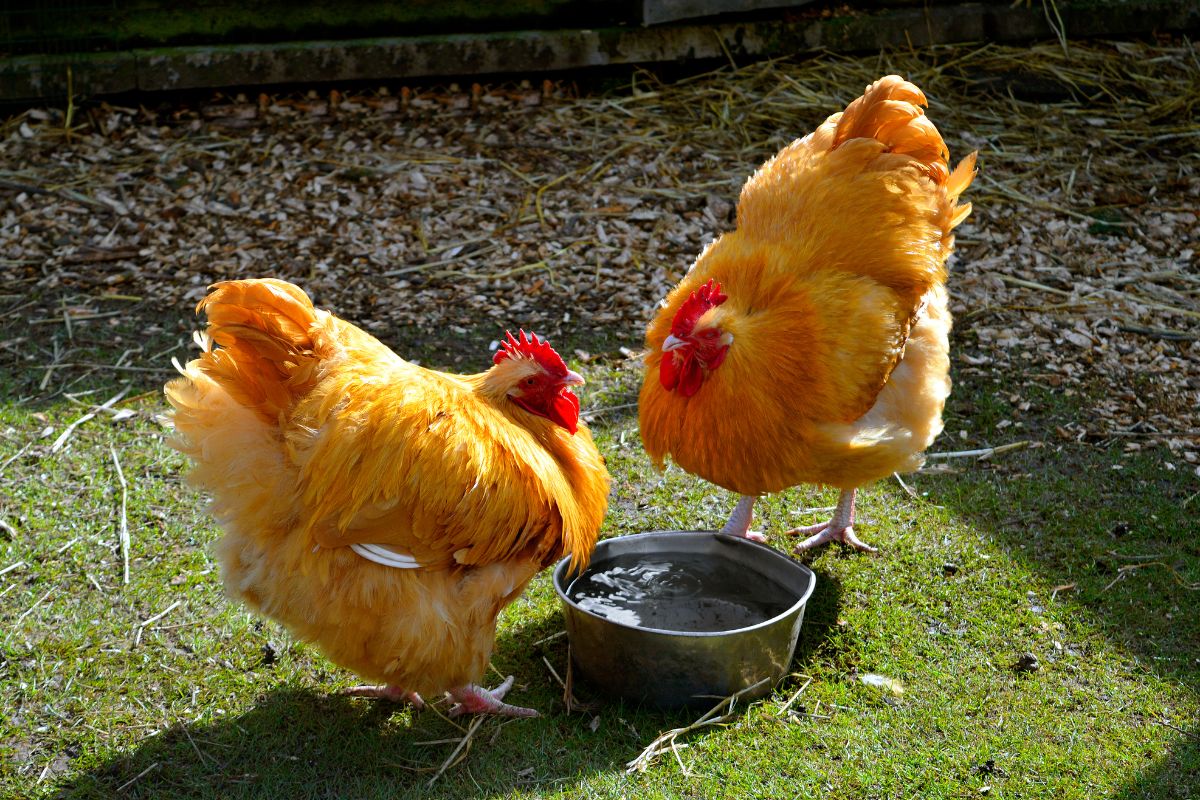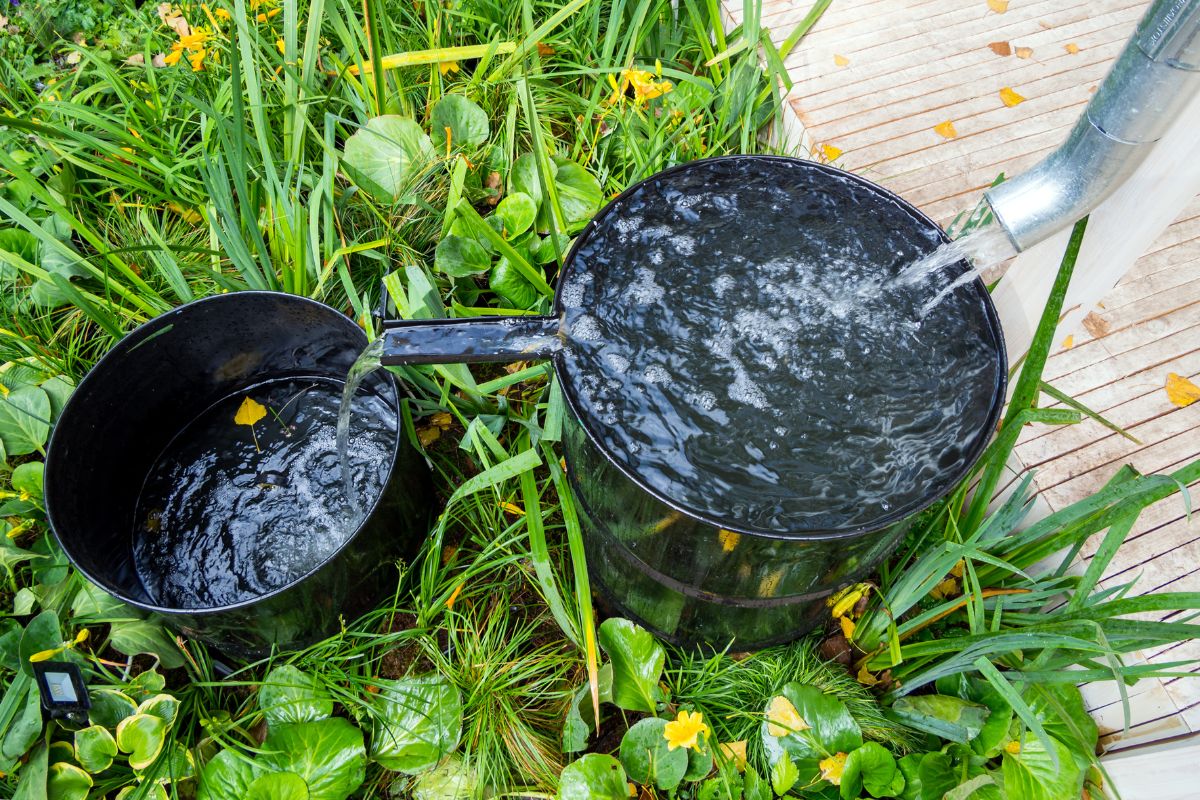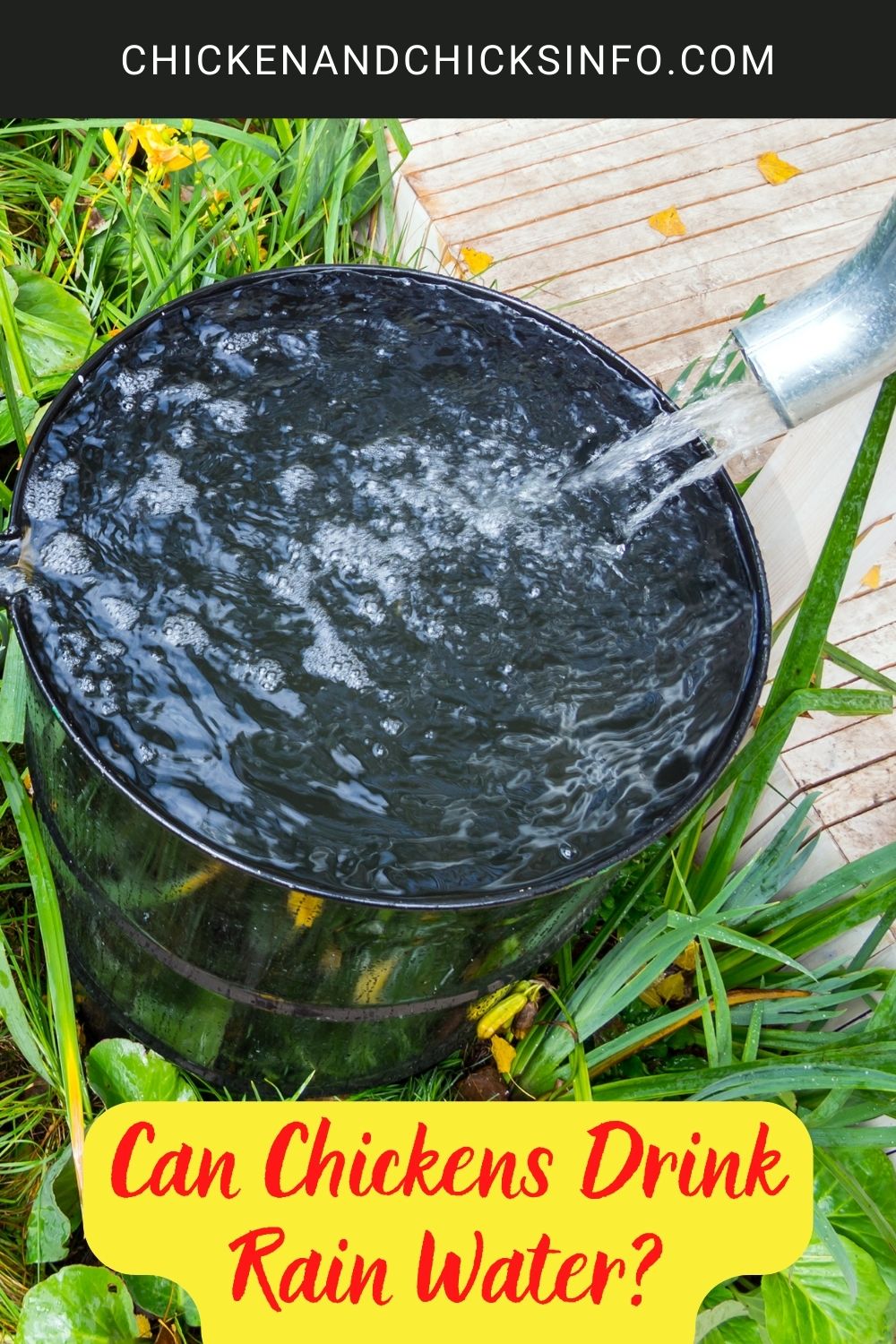
Chickens can drink rain water, yes. In fact, most backyard chicken owners find their chickens seem to prefer puddles of rainwater over using their waterer, just like most animals. The risk of illness or contamination is minimal.
Jump to:
Is Rainwater Safe for Chickens?
Generally speaking, rainwater is perfectly safe for chickens. It’s also safe for us and other animals for that matter.
If you have pets, I’m sure you’ll agree it’s hard to stop them drinking rainwater that has collected somewhere they can drink it. Most pets, and this includes chickens, will often choose rainwater over fresh water in their own waterers - typical!
So, it’s a good job that generally speaking it’s safe!
In fact, a lot of people - in particular the homesteaders and resourceful ones among us (you know who you are) - go through the effort of recycling rainwater as you’ll see in the video below.
I know this is particularly popular within the backyard chicken community. So, if it rains a lot where you live and you’re looking for some ideas to automate filling your waterers, you’re in luck.
How to Install Rainwater Collection for Chickens

I’ve seen various methods of collecting rainwater for chickens and other uses. As long as you're capturing it and collecting it in a clean container, it doesn’t matter how you go about it.
That said, I really like the method used in this video if you’re looking for ideas:
The guy just uses some simple guttering to capture rainfall hitting the roof of the coop, and funnels it directly into a barrel to be given to his chickens.
Be Wary of Stagnant Water and Muddy Puddles
There is a big difference between fresh rainwater and stagnant rainwater that has been sitting out for days, weeks, or longer.
I remember from my days as a boy scout that fresh rainfall water is perfectly fine to drink, as is running water in most cases.
Stagnant water, on the other hand, is where parasites and other nasty little creatures start to breed. We were always taught to boil any water we found that was stagnant, and it was still a bit gross if it was murky.
Now, obviously chickens are more resilient than we are when it comes to eating or drinking whatever they find outdoors. But there is still a risk of them picking up worms or parasites from stagnant water.
For that reason, I tend to try and disperse puddles and shoo my chickens away if I see them thinking about dipping their beaks into any murky, muddy water.
Related - Green water is also a sign of algae. Here’s how to keep your chicken’s water free from algae.
Can Chickens Drink Tap Water

If the tap water where you live is fine for you to drink, it’s also fine for your chickens.
I know some owners boil or filter their tap water before using it. This shouldn’t be necessary unless you’ve been instructed to do so by your local authorities though.
Water from the tap, hose, or wherever else you get your water supply should be fine for your chickens.
Related - Wondering if chickens can drink beer? This is a fun one!
How Much Water Does a Chicken Drink in a Day?
There are a number of things that affect how much water a chicken will typically drink in a day, so I can only provide you with a rough estimate.
A best guess is that a regular chicken in good health will drink between one and two cups of water a day. While a laying hen can easily drink twice that amount - two to four cups a day.
Throw some hot weather in there and a slightly overweight chicken, and you might find you have hens that drink even more than four cups in a day!
Managing how much water you need to leave out isn’t something you need measure for the most part. You should always leave out plenty of fresh drinking water for your flock, and they’ll drink as much as they need.
If you think one of your hens isn’t drinking enough, keep a close eye on them. You should be aware, some chicks chug large amounts a few times a day, while others peck away at small amounts throughout the day.
Related - Want to know more about how chickens pee?
In Summary
Chickens need plenty of fresh drinking water available throughout the day. Be this rain water, tap water, filtered water (for spoiled chicks), it doesn’t matter.
The important thing is that there is always water available. Hopefully, you now know what the potential risks of parasites or illness from rainwater is and how to avoid it.
I’ve certainly never heard of chickens falling sick from drinking rainwater or water in puddles in the yard. Try not to worry!





